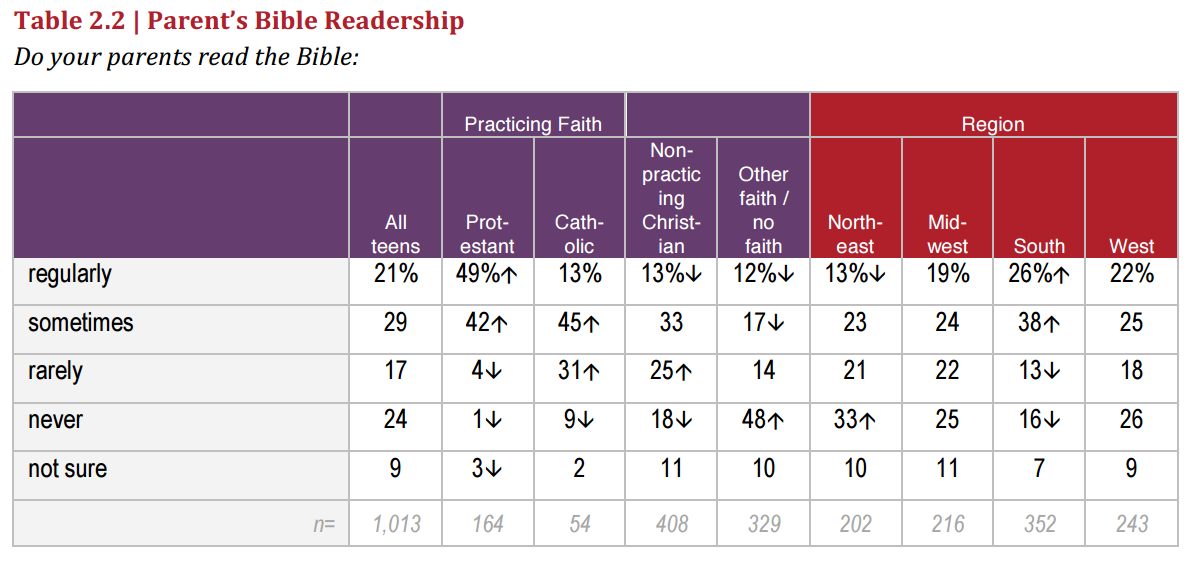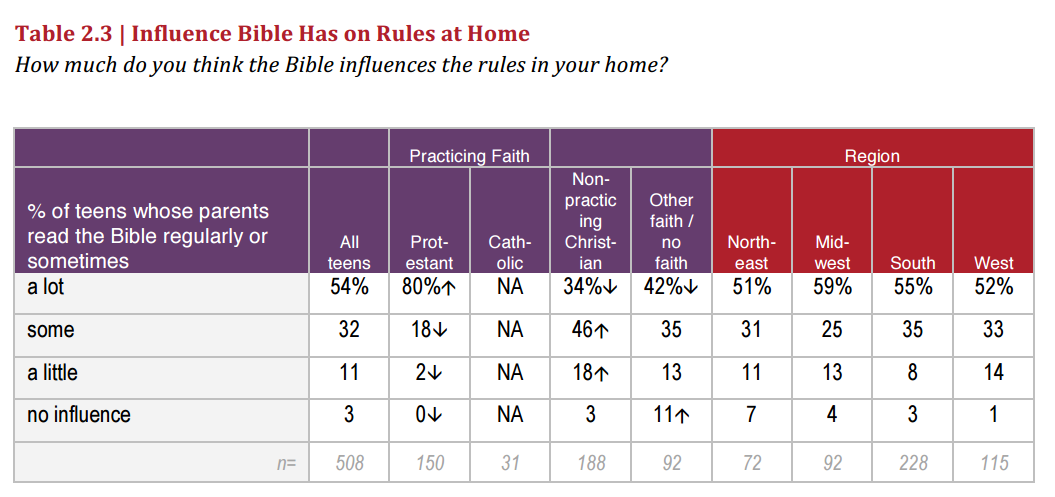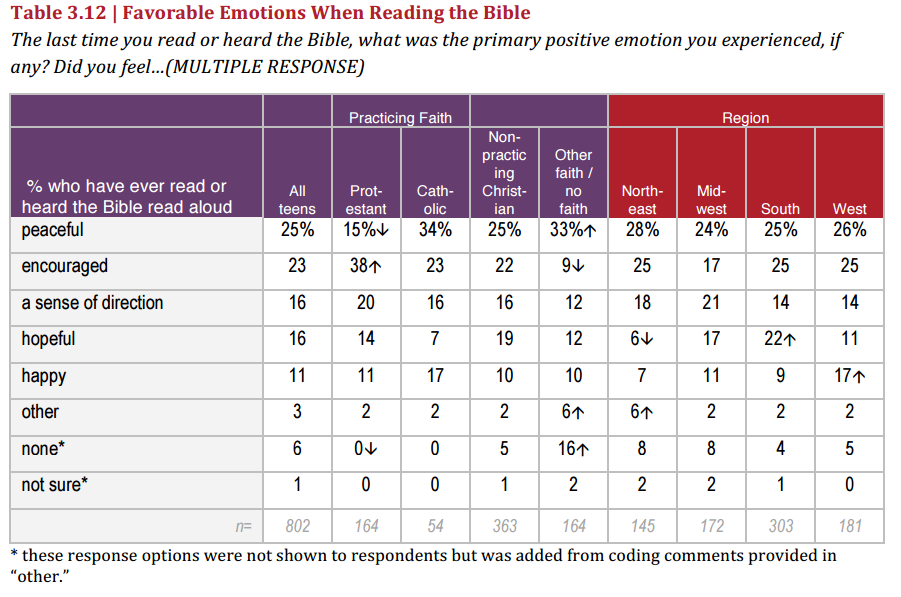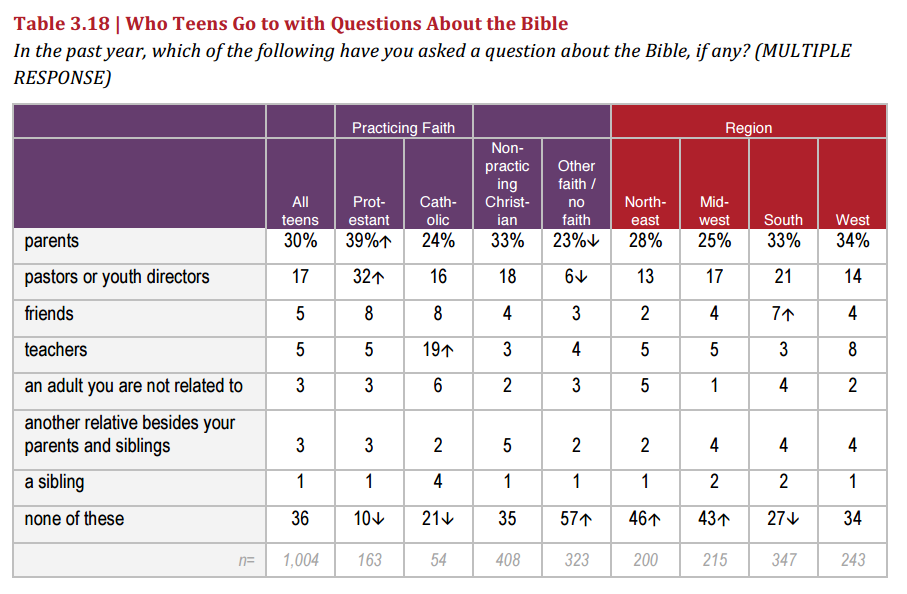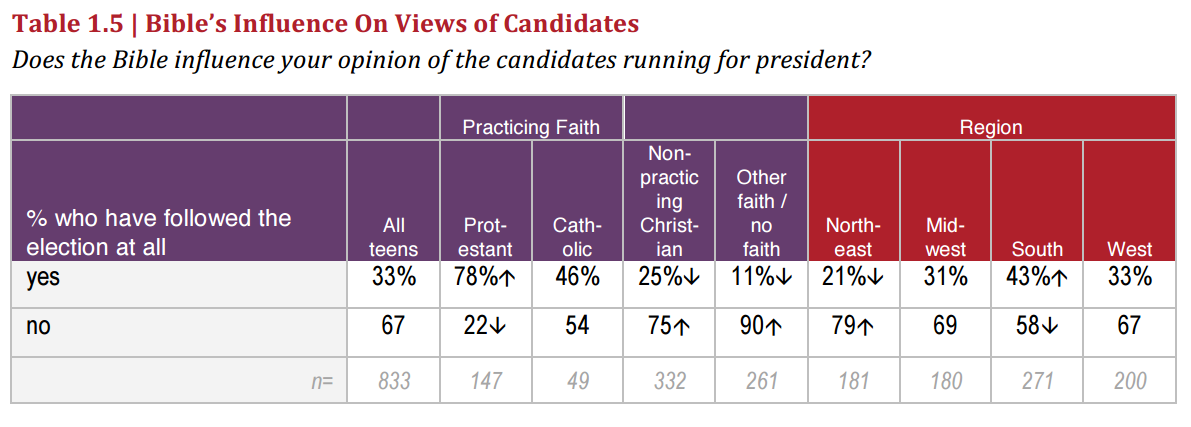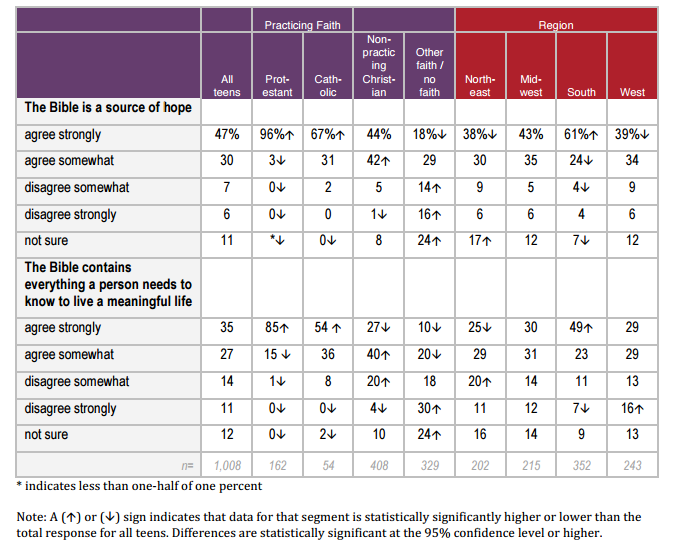Most practicing Protestant teenagers—those who identify as Protestant, attend church at least once a month, and say their faith is very important in their lives—who read their Bible do so the same amount all year long (73%), much like all Bible-reading American teens (69%).
Of those who are left, 18 percent of practicing Protestant teens read more during the school year; only half that amount read more during the unstructured summer (9%). Those numbers echo across all teens (21% read more during school, 10% in the summer) and non-practicing Christian teens (19% read more in the school year, 10% in the summer).
Those findings come from the second annual poll of how more than 1,000 teens ages 13 to 17 interact with the Bible, commissioned by the American Bible Society and conducted by the Barna Group in May.
Though there are fewer of them (16%, compared to 20% in 2015), practicing Protestant teens look a lot like they did last year. Slightly fewer said the Bible contains everything needed for a meaningful life (85%, down from 88%) and said they read their Bible every day (12%, down from 16%). A few more said they had read a liturgical text in the last week (14%, up from 10%).
The survey also asked brand-new questions, including whether teens saw their parents reading the Bible. Half of practicing Protestants (49%) said their parents read Scripture regularly; another 42 percent said sometimes.
Teens whose parents read the Bible regularly are more likely to read it themselves, Barna told CT. Among teens who say their parents read the Bible regularly or sometimes, 45 percent report reading from the Bible at least once a week, compared to just 5 percent of teens whose parents do not read it regularly.
Of the teens who read the Bible at least once a week, 90 percent say their parents regularly (55%) or sometimes (35%) read scripture.
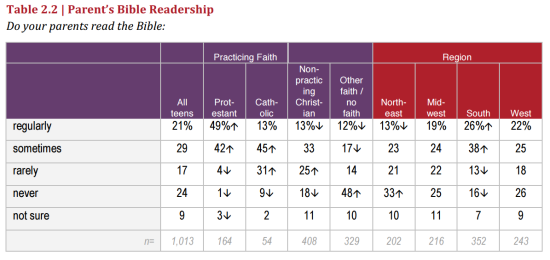
Of practicing Protestant teens who reported their parents read Scripture, almost all said that the Bible influences the rules in their home quite a lot (80%) or somewhat (18%).
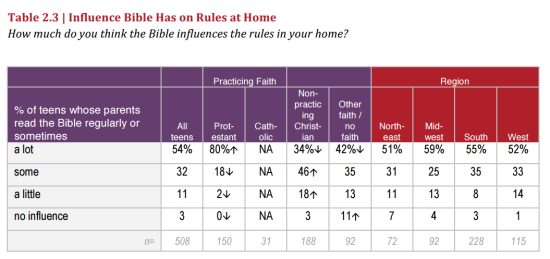
Half of practicing Protestant teens said the Bible is the inspired, inerrant Word of God, and a little more than 40 percent said it was the literal Word of God, just like in 2015. Half also said their personal use of the Bible has stayed the same, and another 40 percent said it went up in the past year; the same was reported in 2015. The biggest reason for the reported increase: an understanding that it was an important part of their faith journey (55%).
But the perception teens have of reading more doesn’t match the time they reported actually reading the Bible.
Fewer practicing Protestant teens reported reading their Bible on their own once a week or more (66%) than last year (74%), while more reported reading once a month or less (35%, up from 26%).
However, they’re doing it for longer amounts of time: more read for an average of 15 to 29 minutes (43%, compared to 32% last year) and less read for under 15 minutes (22%, down from 28%).
More reported feeling encouraged or inspired by the Bible (38%, up from 30%) than peaceful (15%, down from 21%) or finding a sense of direction (20%, down from 25%). More also reported feeling confused (31%, up from 23%), but fewer were overwhelmed (16%, down from 21%).
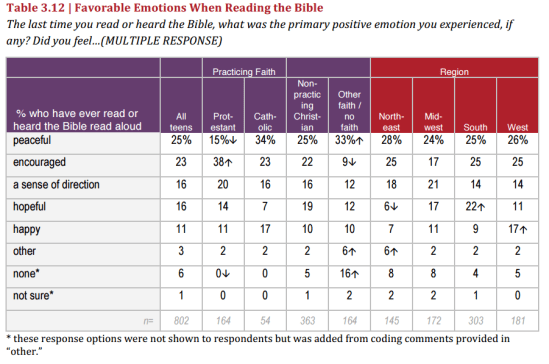
Practicing Protestant teens who read less this year said it was mainly because they were too busy (71%), a striking jump from those who reported being too busy in 2015 (51%). On the other hand, fewer teens this year reported being frustrated at their lack of time to read (18%) than last year (28%). Fewer also wished they read the Bible more (90%, down from 96%).
A few more said they read the Bible to feel closer to God (78%, up from 76% last year); a few less said they read because they knew they were supposed to (5%, down from 11%).
Those who read the Bible at least once a week reported that they’re thinking about what they read. Nearly all said they gave a lot of (42%) or some (55%) thought to how it might apply to their lives.
When they have questions, most practicing Protestant teens are asking their parents (39%) or a pastor or youth director (32%). Fewer ask friends (8%), teachers (5%), or an unrelated adult (3%) what they’re wondering about.
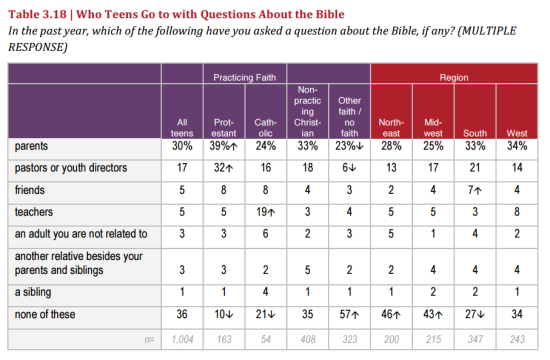
Fewer practicing Protestant teens (37%) than last year (41%) felt at least somewhat confident about their Bible knowledge, including just 4 percent who felt highly knowledgeable (compared to 10% in 2015). But most could identify Solomon as David’s son (71%) and Elizabeth as John the Baptist’s mother (63%).
Most practicing Protestant teens wish the Bible would have more influence on public life. About 94 percent said politics would be better if politicians regularly read the Bible (93% thought so last year), while 86 percent said the Bible has too little influence on society (up from 78% last year).
Seven in 10 are following the presidential campaign, and nearly 8 in 10 said the Bible influences their opinion of the candidates (78%).
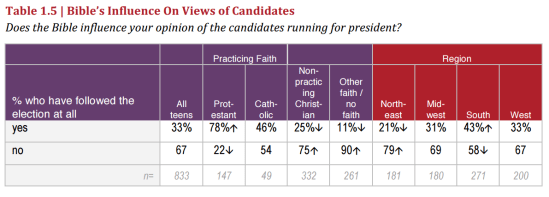
Half of practicing Protestant teens have watched a Bible-themed television show in the past year (51%); even more have seen a Christian movie (78%). Fewer have played a Bible board game (13%) or a Bible electronic game (7%).
For the first time, the survey asked whether teens found the Bible a source of hope. Virtually every practicing Protestant teen agreed; so did 77 percent of all teens, 47 percent of them strongly.
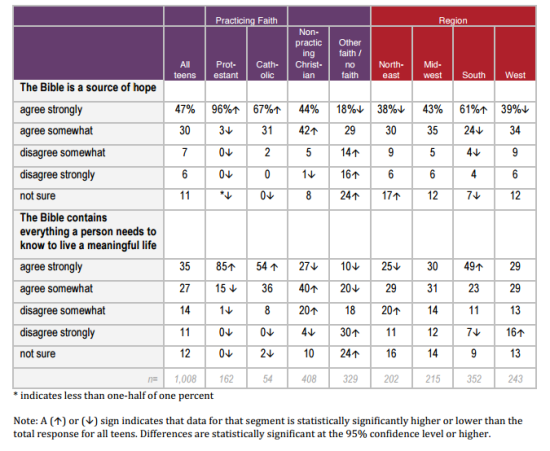
Other findings included:
- Seeing someone reading the Bible in public made 83 percent of practicing Protestant teens feel happy that other Christians were around (up from 78% last year), 81 percent feel encouraged (up from 64%), and 64 percent grateful that sacred books are still important to people (up from 53%).
- Predictably, using technology to read the Bible is on the rise. Significantly more practicing Protestant teens than last year searched for Bible verses on their phone (67%, up from 54%) and looked up Bible content on the Internet (51%, up from 41%). One third said they’d rather read the Bible on their smart phone or tablet app (33%), up from a quarter last year (26%).
- Nearly all practicing Protestant teens plan to attend church on a regular basis after they graduate from high school or move away from home (94%, down slightly from 96% last year).
- About 35 percent of all teens strongly agreed the Bible contains all one needs to know to live a meaningful life, down from 41% last year. More teens strongly agreed in 2016 than millennials (27%), but less than adults (45%).
- Just 11 percent of all teens said the Bible, the Koran, and the Book of Mormon all contain the same spiritual truths—the same as last year, and less than millennials (15%) or adults (16%).


